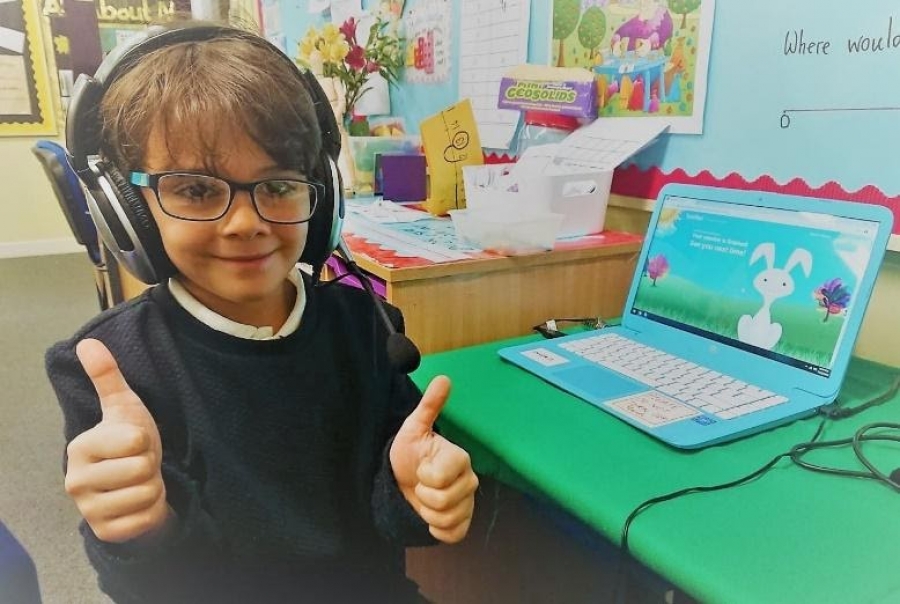As the new school year approaches, teachers are thinking through their recovery curriculum for KS1, packed with revision of key concepts and targeted catch-up for those who’ve fallen most behind. The government’s recent announcement of a £1bn fund, with £350m for private tutoring, will be a welcome boost; there’s lots of strong evidence of the impact 1:1 and small group tuition can make on improving the progress of struggling children.
However, it’s highly likely that these extra resources will not be enough to go round, so teachers will be left with difficult choices to make about which children, in which year groups, get extra help. Schools will need to ask themselves: are there other creative, low-cost ways to involve a wider circle of adults in the very specific task of reading practice?
Pre-lockdown, many schools ran parent reader programmes, used tutors recruited and trained by charities, or had partnerships with companies that sent in volunteers each week. Not only is organising these programmes time-intensive, it’s highly probable that school visitor restrictions won’t allow all that to continue this autumn -- so schools should think about how to take volunteer reading online! Virtual reading support is a fantastic way to enjoy stories, boost oracy skills and provide children with encouragement, praise, conversation and human interaction.
If you are a school leader or teacher, there will be many factors for you to consider: do you want to manage a programme yourself (more work!), or partner with a charity or local business? Who will organise and set up the technology? How will you coordinate DBS checks? Which platform should you use? What safeguarding issues are there to consider? Will a voice-only option be better (because of safeguarding and internet quality) than using video? How about timetabling sessions and co-ordinating with volunteers?
These testing times call for innovative thinking and radical solutions. As the over-subscription to the NHS volunteering scheme showed, many people are keen to help those set back by the Covid crisis. If a volunteer reading model works well, the children involved can be supported to master that most fundamental of all skills - the ability to read. This is of course essential to their wider learning, but it is more than that. According to evidence amassed since 2005 by the National Literacy Trust’s annual reading surveys, if young people actually enjoy reading, as well as doing better in the classroom, they are happier with their lives.
So, how can a school get started down this path? A few pointers:
- Search online for any reading schemes that operate near you and find out what their virtual offer is. There isn’t unfortunately one master site that lists all charities that run such schemes, but this list on the Publisher’s Association site is a starting point.
- Organising a reading scheme in partnership with another organisation, like a charity, will be less work for you but might sometimes involve a cost.
- If you do enter into a partnership, ask detailed questions early on about safeguarding, logistics and technology to ensure their programme will work for your school.
- If you can’t find a suitable reading scheme that serves your area, you could:
- talk to your PTA or community contacts about mobilising parents who might be working from home to do online reading with children at school.
- Consider any existing relationships you have with local businesses and whether they might help you set up a scheme/sponsor equipment etc.
- Once you have volunteers, dedicate some staff time to thinking about the platform you want to use for this (audio, video etc etc), the equipment you’ll need and the reading materials the parent readers could use.
- Whatever model you decide upon, consider how you’ll introduce this extra support to your parent community and secure parental consent for children to participate.
Case study:
Dylan was floundering at the end of last school year. Aged six, he was at an inner London primary where over 60% of children receive free school meals (the national average is 20%). He was struggling to meet age-related expectations and showing signs of dyslexia; the condition ran in his family, in which the socio-economic circumstances were also challenging. His confidence as a reader was at rock bottom.
Dylan’s teachers feared for his prospects. Then they put him forward for a remote reading programme, which used a dedicated laptop installed in his classroom. A volunteer tutor encouraged his reading in weekly, 30 minute online sessions, just using voice with no video. Week by week, his confidence grew. In a thrilling turnaround, by the end of the academic year Dylan (not his real name) was reaching expectations for his peer group. His teachers were delighted—as was Dylan himself.


















